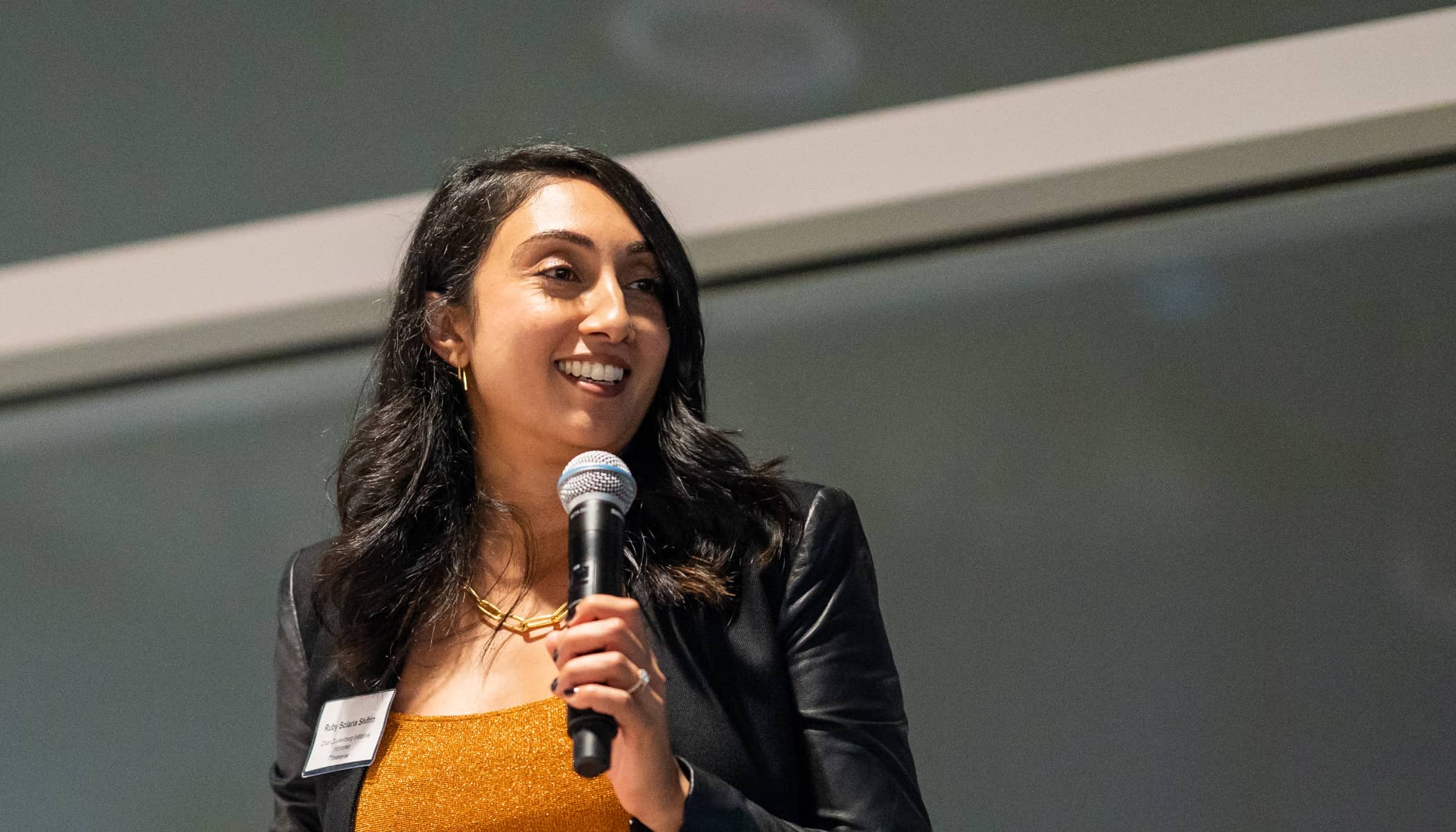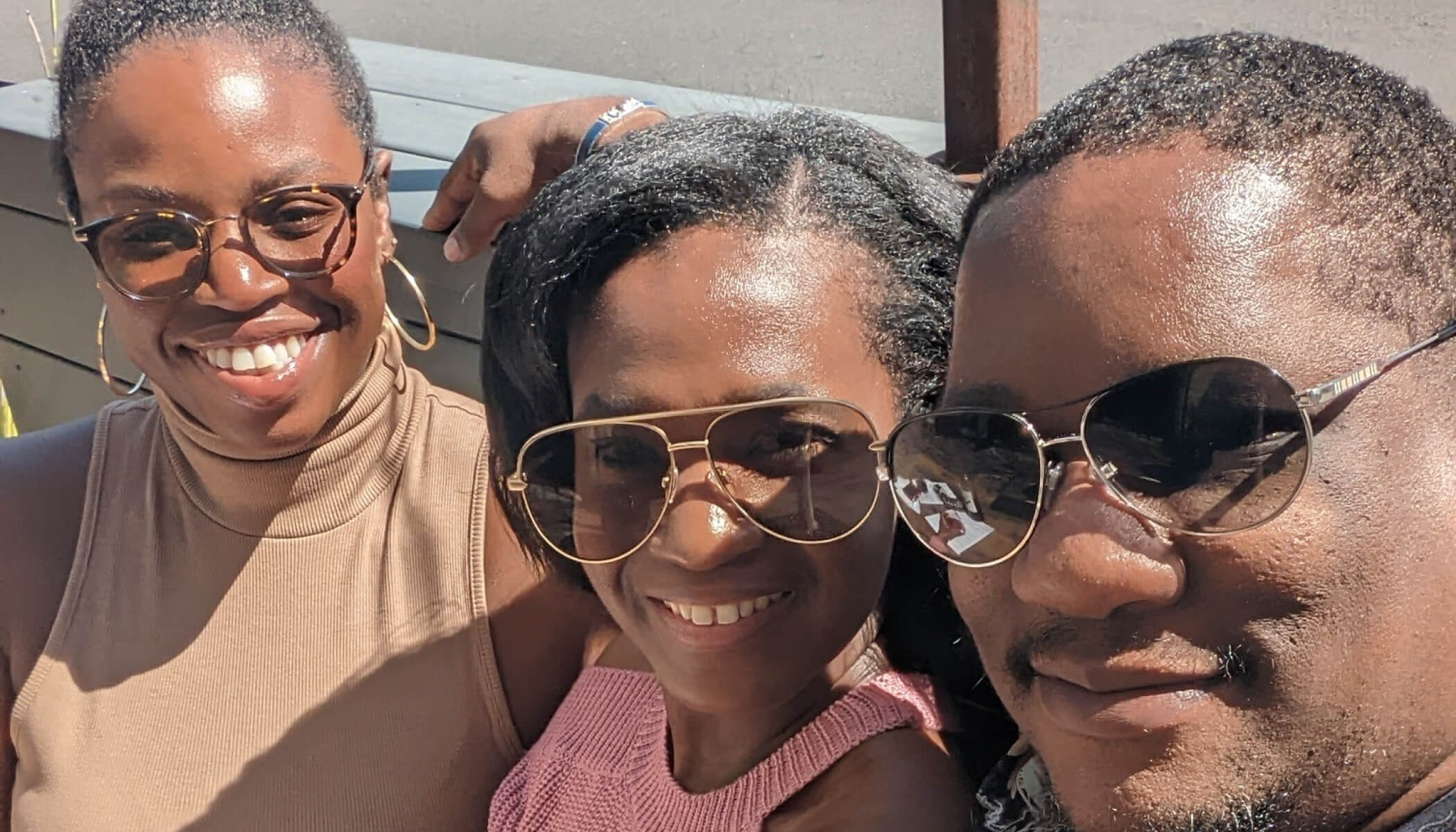Jun 24, 2019 · 10 min read
Behind the Movement with Efrén Olivares
Progress on many of the world’s most pressing issues is driven by fearless leaders who stand with their communities and build movements that effect change. This series highlights those courageous and innovative people on the frontlines and their bold missions to create a more equitable and inclusive future for all.
Meet Efrén Olivares.
It’s 8 a.m. in south Texas. Efrén Olivares has already arrived at the courthouse and awaits the day’s family separation trials. This has been his routine — before jumping into press conferences, local news appearances, marches and rallies, court filings, paperwork, strategy planning, and more — for nearly a year. As someone who immigrated from Mexico himself, Efrén has a deeper understanding of those who seek a better life in America and want to contribute to the American dream. Every day, he sees firsthand the impact of the federal government’s “zero tolerance” policy.
But his work wasn’t always this intense. Efrén, a University of Pennsylvania and Yale Law School graduate, could have practiced law anywhere. Instead, he saw an opportunity and a need to serve the community that embraced him and his family when they first came to this country. He joined the Texas Civil Rights Project (TCRP) in 2013 as a staff attorney and then shortly after became the legal director of the south Texas office. An organizational restructure moved him into his current role as Racial and Economic Justice Program Director since 2017. TCRP seeks equality and justice for everyone in Texas — in and out of the courtroom — through litigation and legal advocacy. Efrén says TCRP, in some ways, operates like a large national organization and at the same time is committed to keeping close ties to the community. This duality allows Efrén and his small but mighty team to do more than impact litigation. TCRP’s border presence and community connections enable the voices of those who are impacted the most to dictate policy change.
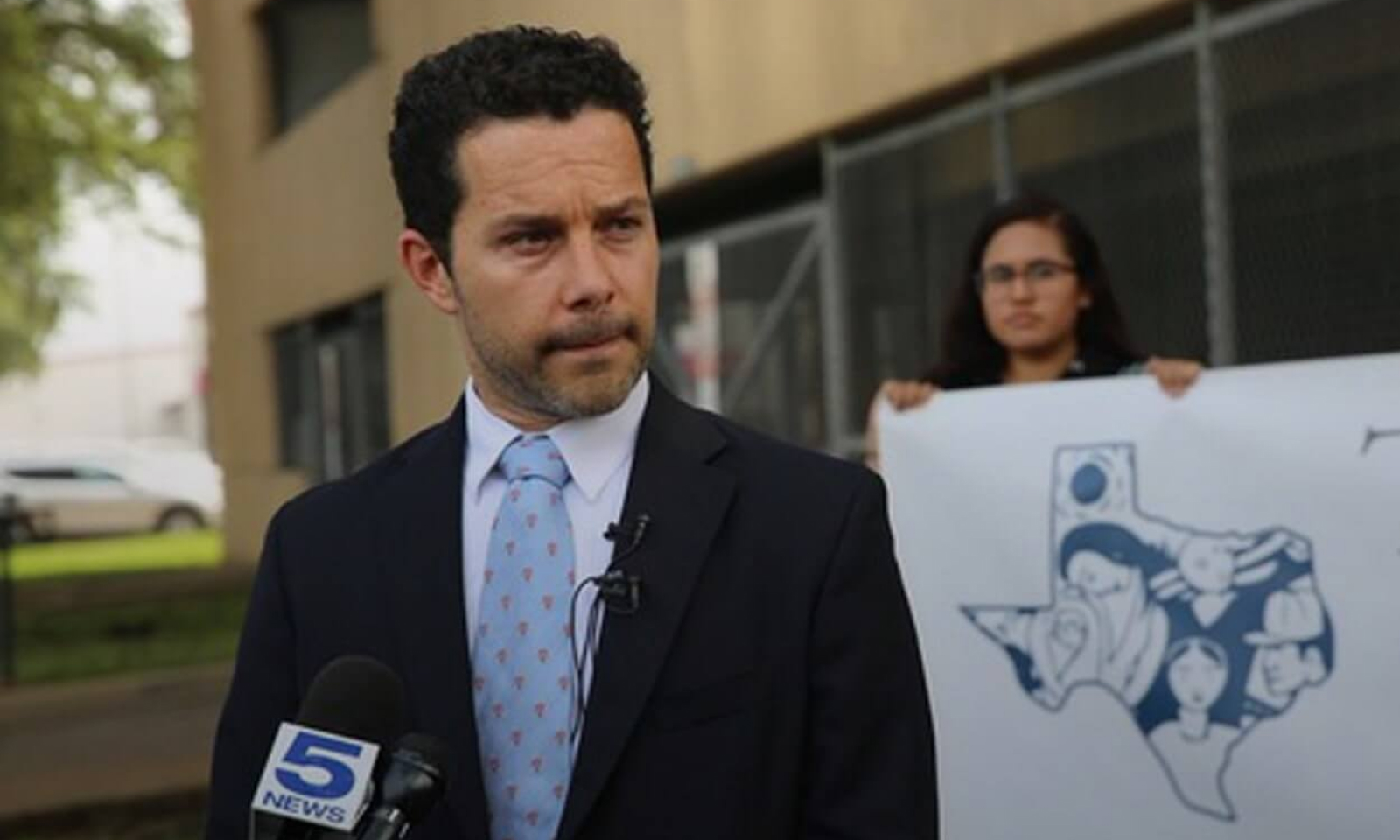
Describe the people who are on the front lines alongside of you. Why do they join the movement?
A year ago, when the family separation crisis started, there were three of us in the south Texas office. It was me, our paralegal, and our part-time community outreach coordinator. We’ve been able to grow the office to four lawyers and another community outreach coordinator in the last 12 months. Now, we’re able to rotate our court monitoring work. They have all joined because they want to be a part of this fight. That gives me inspiration to keep doing it.
Every time we are able to reunite a family is a huge win.
You made your way back to Texas multiple times after you left for school and a human rights fellowship. What called you to this work and to serve as a voice for those who are voiceless?
I did a one-year fellowship in Washington, D.C., at the Inter-American Commission on Human Rights. When that was wrapping up, I was trying to make a decision about where to go next. I thought I wanted to live abroad and work for an NGO. But I also didn’t want to be too far from my family. One day while I was driving to Houston, it hit me that there has always been a need for good lawyers in south Texas, and my family also lives there. I thought I could feed two birds with one seed.
I didn’t envision, in my wildest dreams, that it would be anything like it was last summer with the family separation crisis. I’d never seen this level of hate against immigrants. When it happened, though, I felt like I was the right person for that type of work.
The Texas Civil Rights Project (TCRP) has been around since 1990, fighting the good fight. Can you tell me more about the challenges of working with existing structures and implementing new ideas?
TCRP was born out of the farmworker movement and the need for legal representation in south Texas. Today, the challenges that we face aren’t necessarily just farmworker challenges, although those continue to exist, but our mission is still the same. TCRP restructured three years ago after our founder James Harrington retired. We have managed, I think, to make a TCRP 2.0 that respects our roots while making us more sophisticated and more strategic in achieving our mission without losing our connection to the community. I’m committed to making sure it’s this way.
Challenges are to be expected in your line of work. What motivates you to keep going when you feel like giving up?
I have a magazine cutout of Ruth Bader Ginsberg on my door. So when I think that I’m getting too tired or that this is too hard, I think of her. If she can continue to do it at almost 90 years old, I better be able to continue doing it. [laughs]
Kidding aside, I believe that whether people are able to win a case, or overcome a legal challenge, discrimination or injustice, depends in large part on the lawyer who’s able to help them. Typically, only the wealthy and powerful can afford the “better” lawyers. I’m committed to providing the best possible quality legal service to the most vulnerable members of our society.
That requires a great deal of empathy and compassion. What do you do to refuel the tank and to separate yourself from your work?
[laughs] I play soccer. It’s the one thing that I can do where I’m absolutely not thinking about work. When I’m playing, I’m just thinking about the game. That mental break is huge for me. I also love hanging out with my son. Every day I come home, play with him, and see him grow. That’s really rewarding and gives me hope.
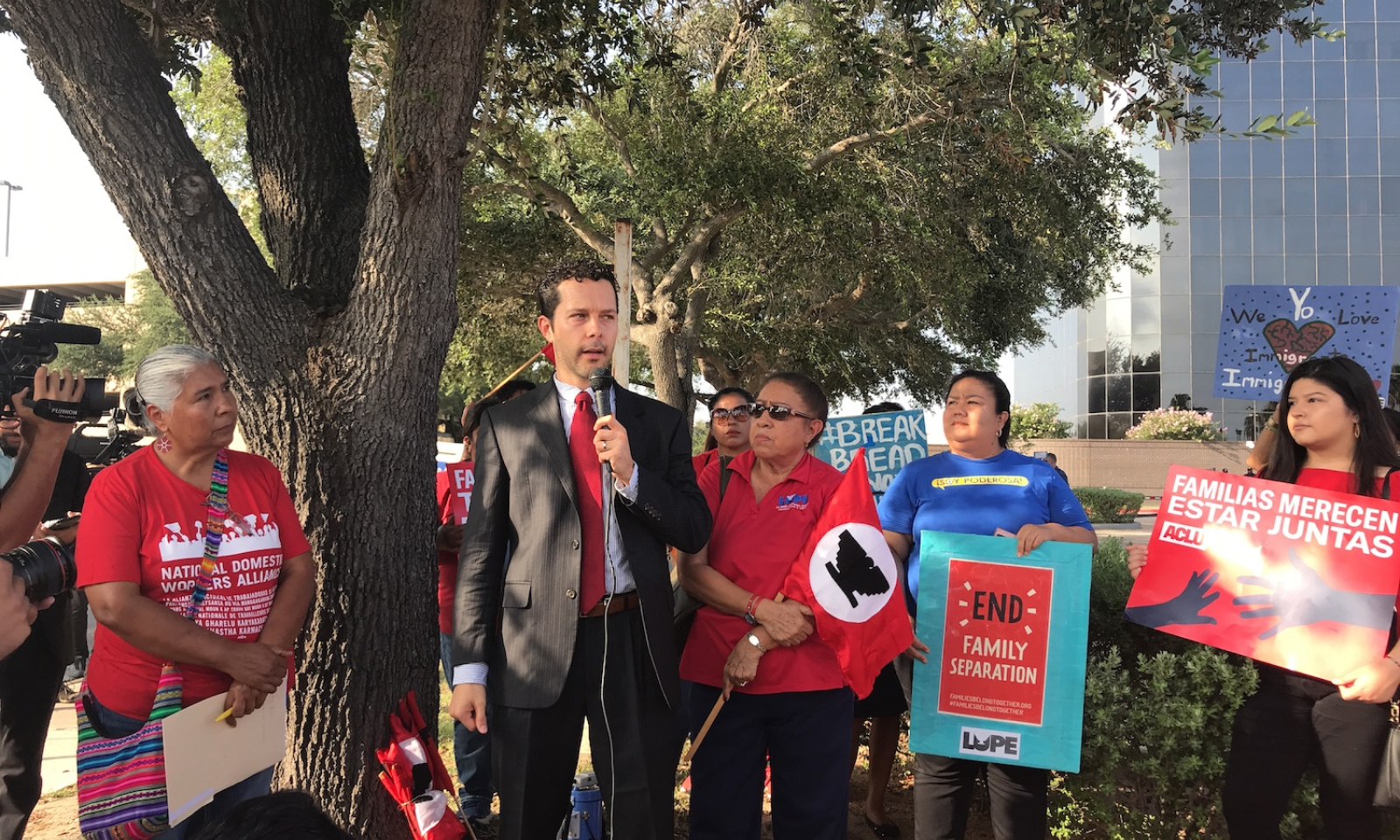
America is a country made up of immigrants, and that’s why many are so proud to live here. What does that experience mean for people today?
Sadly, more than I can remember in my lifetime, the color of your skin matters today. Immigrants are not welcome to the country by this government in the same way, at least not right now during this administration and by the people in power at the federal level.
Why is it important to address the immigration debate now?
I think, given the push that we are facing to change laws through litigation, executive actions, or international agreements, we are risking making changes to the law that will affect the flow of immigrants, refugees, and asylum seekers to this country for decades.
What happens in the next few months and years, in terms of how we want to administer immigration and asylum law in this country, is going to have long-lasting consequences. I’m hopeful that reasonable minds can triumph and that we can have a system that is driven by the principles of freedom and equality that were at the founding of this country.
I’m committed to providing the best possible quality legal service to the most vulnerable members of our society.
With the 2020 election around the corner, why is immigration such an important point for candidates and voters?
The “zero tolerance” policy, which criminalizes everyone who crosses the border illegally, is misguided and motivated by political interests rather than sensible concern for the immigration system. It has resulted in the criminalization of thousands of asylum seekers, including families and people who pose no threat to our communities. The administration is wasting precious law enforcement, judicial, and border patrol resources criminalizing immigrants with no purpose at all.
“Zero tolerance” needs to end as a policy. That’s not the fix for every challenge we face, but it is the first step in the right direction. This doesn’t require an act of Congress. It’s a policy adopted by the last attorney general and can be rescinded through the stroke of a pen by the attorney general.
Think back to when you first started doing advocacy work. How has your experience changed between then and now?
Today, we’re fighting to undo what this administration has done as a first step. We’re trying to have a vision for what needs to change in the immigrants rights landscape in the next five, 10, 20 years. But first, we need to go back and undo all of the problematic changes that have taken place over the last two years. From there, we can push toward a new vision of where our immigration laws and system need to go. That’s a significant difference.
How do we go back and undo these things?
One, litigation. Two, community outreach. And those are the two tools that we use at TCRP. We can inform community members about their rights and what they do and don’t have to do. An informed community is going to be a lot less vulnerable to abuse. We also need to make sure everyone’s right to vote is protected and that people actually do vote so our elected leaders reflect our communities. We need to keep hammering on those things in order to achieve progress.
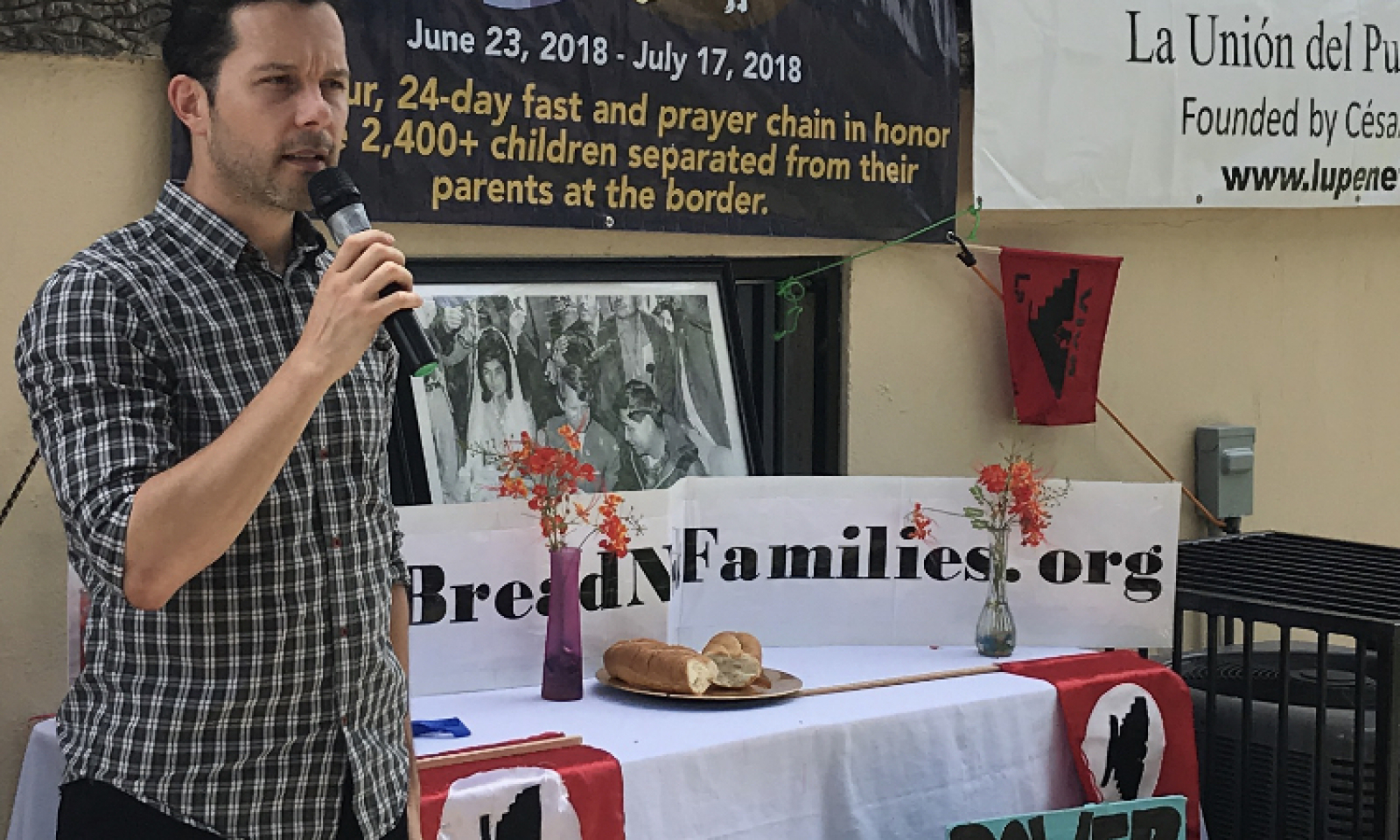
If people are interested, how can they join the movement?
People can partner with TCRP in a number of ways. Here in TCRP’s south Texas office and in the immigrants rights field, we are always looking for Spanish-speaking volunteers. If they’re a lawyer, we’re looking for pro bono assistance to co-counsel cases or help out with research. People can also donate to the work that we do, but I want to be clear that that’s not the only way they can partner up with us.
The work you’re doing is demanding, no doubt, so it’s important to take time and celebrate the victories. Any recent wins that you’re particularly proud of?
Every time we are able to reunite a family is a huge win. We’re haven’t ended “zero tolerance” yet. We’re not completely changing the policy. But for that mother and for that 4-year-old, when they’re able to hug again after weeks and months of being separated, it means the world. Every single unification that we achieve, it’s a huge victory.




